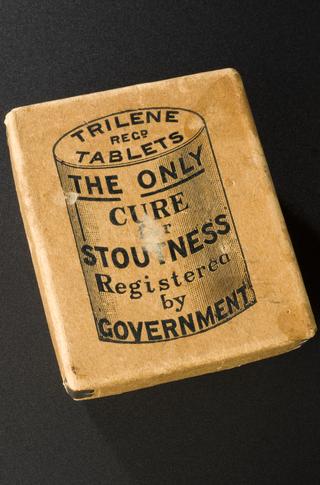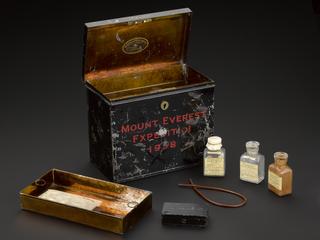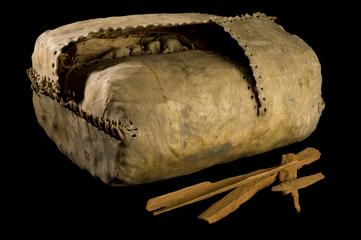
'Betrayal', artwork, on canvas, made by Ed Freeman for the Thalidomide Health Grant Campaign, exhibited in all four United Kingdom Parliaments, 2012-2013
The artist Ed Freeman describes his piece called ‘Betrayal’ which: “refers to how our parents were betrayed by all of the people around them - the medical profession, the government and the law and the developer and makers of thalidomide – Chemie Grunenthal. The focal point of the piece is a foetus with four shortened limbs in a thalidomide tablet bottle, representing the womb. Either side of the bottle are generic parents, exhibiting confusion. All around are words, which include the chemical elements of thalidomide and the emotions our parents went through. I feel we Thalidomiders get all the positive attention whilst our parents are either ignored or even worse, blamed.”
This art piece by Ed Freeman was part of the campaign for the Health Grant in 2012-2013, being displayed in all four United Kingdom parliaments. Pieces by Laura Beeton, Katrina D'Andilly-Gardiner, Ed Freeman and Liz Buckle, were displayed alongside a collection of photographs by Jamie Long. Titled ‘Thalidomiders in Action’ they were open acknowledgement of how the governments' health grant is helping people to live active, creative lives. After years of campaigning by the Thalidomide Trust and Society members, the UK Government agreed to pay £80 million to those in England living with thalidomide impairments between 2013 and 2023. The scheme has since been confirmed to be life long with funding confirmed in a four year cycle. Originally, this hard won grant only ran for three years between 2010 and 2013 and totalled £20 million.
Ed Freeman was one of at least 500 children in Britain born with impairments caused by thalidomide. His mother had pneumonia while pregnant with him, and took thalidomide to help her sleep on medical advice. After just two tablets, her hands started to tingle so she stopped. Unknown at the time this caused impairments to Ed. He and his family continue to be active in the Thalidomide Society, campaigning for people living with thalidomide impairments and their families. Ed is a father to two children, stepfather to two further children and a graphic artist.
Thalidomide was a compound found in drugs prescribed to people in the late 1950s and early 1960s. Although today it is associated primarily as a treatment for pregnancy related nausea, it was also prescribed to anyone experiencing symptoms of colds, flu, headaches, anxiety, and insomnia. Thalidomide causes nerve damage in the hands and feet of adults, but when taken in early pregnancy it causes impairments such as limb difference, sight loss, hearing loss, facial paralysis, and impact to internal organs. One tablet is enough to cause significant impairments. Researchers later identified that there was a link between the impairment a person is living with, and which day of the pregnancy thalidomide was taken. UK distributors withdrew the drug in 1961 and a government warning was issued in May 1962.
Details
- Category:
- Materia Medica & Pharmacology
- Object Number:
- 2024-431
- Measurements:
-
overall: 420 mm x 594 mm
overall (estimated): 297 mm x 420 mm
- type:
- artwork



